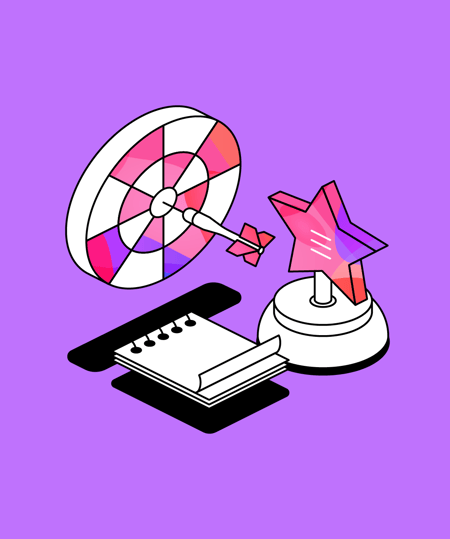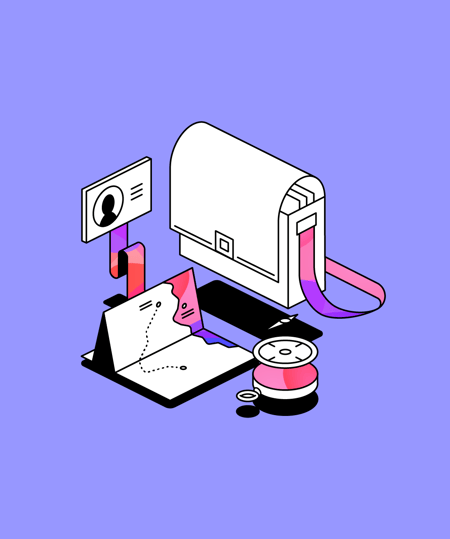From individuals to institutions: How Disability Services offices can be the drivers of strategic goals
Higher education is evolving, and so is the role of Disability Services. Discover how, in collaboration with Genio, Disability Services are becoming key players in driving institutional goals and creating a more inclusive learning environment for everyone.
 3 min read
3 min read
 Published: 24 Jul 2025
Published: 24 Jul 2025
 Jacob Goodwin
Jacob Goodwin


Disability Services offices have long been the unsung champions of equitable access in higher education. But a shift in student demographics is calling these experts to a new, institution wide role.
Here we explore how, in partnership with Genio, Disability Services are leveraging their unique expertise to support the entire student body, driving strategic goals and transforming the learning experience for everyone.
How Disability Services are supporting students
Disability Services offices perform an incredible, often challenging, role within their institutions. They are the bedrock of support for students with disabilities, ensuring equitable access to learning and empowering them to learn independently.
This vital work significantly improves the educational experience for these students.
However, these departments frequently operate under significant constraints, including being underfunded and understaffed, while managing unmanageable caseloads.
Despite their critical function, a staggering 65% of students with disabilities do not register with their campus Disability Services office, meaning a large number of students who could benefit from support are not receiving it.
This highlights a gap in provision that institutions are increasingly seeking to close.
The rise of the New Majority
The once non-traditional student now constitutes an estimated 93% of the student population.
This New Majority includes a diverse range of learners who have been historically underserved by traditional education models including working students, parents and first-generation learners among others. The graph below shows the change in the population of working students between 2004 and 2022.

Above shows the change in the percentage of working students between 2004 and 2022.

Above shows the change in the percentage of students identifying as neurodivergent between 2004 and 2022.
College was never designed for the success of these learners, and was often designed to purposefully keep them out - Education Design Lab
These students often face one of three fundamental learning challenges. Data from The New Majority Learner Report 2025 indicates that 77% of learners face individual barriers, 43% feel underprepared for their studies, and 34% are time-poor.
This shift has led to a drop in student retention rates and put increased pressure on institutional budgets. As a result, there is a growing strategic focus on supporting these struggling and underserved students.
Sharing the expertise of Disability Services institution wide
So, who on campus is best equipped to support this New Majority? The answer is clear: Disability Services. These teams are already experts in:
- Supporting New Majority learners daily.
- Assisting students who face fundamental learning challenges.
- Helping underserved students to thrive in higher education.
- Providing proactive, tech-first support from the start of the academic year.
- Training students in how to use technology to enhance their learning.
- Monitoring usage to ensure students are getting the most from their support tools.
This deep, specialised expertise is not common elsewhere on campus.
As the student population has changed, so too must the approach to student support. Disability Services are perfectly positioned to lead this change and make a significant impact at an institutional level.
Examples of Disability Services offices leading the charge
Across the country, we are seeing a growing number of Disability Services offices stepping into this broader role, driving strategic initiatives and improving student engagement and retention by reaching underserved learners.
Berkshire Community College
By expanding access to Genio's note taking tools institution-wide, Berkshire Community College saw a 900% increase in the number of students accessing this support.
This move helped them combat stigma, fill support gaps for the "missing 65%," and provide proactive support without the need for documentation.
It has been my career goal to ensure everything is as universally accessible as possible to ALL students, and this gets me one step closer to achieving that monumental goal - Pamela Farron, Disability Services Coordinator
Volunteer State Community College
At Vol State, providing Genio to all students has yielded impressive results with over 1,200 students now active users.
Crucially, freshmen who use Genio are 11% more likely to persist from their first to their second semester. Furthermore, 88% of student users feel more confident in their studies.
The impact has been so significant that campus leaders have secured ongoing funding through the Student Tech Fee.
Florida Atlantic University
During their pilot program, Florida Atlantic University saw high engagement with Genio Notes, with students recording over 3,600 classes and viewing them more than 6,700 times.
Student feedback has been overwhelmingly positive, with one student noting, "I use the app daily in class and really find it helpful." The university is now planning to expand its usage by working with the marketing department to create webpages, presentations, and flyers to reach an even wider student, staff, and faculty audience.
Your expertise, your institution's future
The evidence is clear... The expertise that resides within Disability Services is the key to supporting the new majority of students and addressing some of the most pressing strategic challenges in higher education today.
By expanding access to tools like Genio, these departments are not just providing accommodations; they are amplifying their impact, fostering a more inclusive learning environment, and driving student success across the entire institution.
The question now is not whether Disability Services can lead this change, but how.
How can you use your unique expertise to drive your institution's goals?
Validating the impact of Genio
A common thread in these phenomenal stories is the positive impact of Genio Notes. This approach is validated by independent research, a mixed-methods study conducted by LXD Research across multiple institutions which revealed several key findings including:
- Improved retention: A statistically significant 29% reduction in students considering dropping out
- Enhanced performance: A measurable and statistically significant increase in student GPAs.
- Developed skills: A significant increase in note taking confidence among new users.
- Better experience: Students reported positive shifts in their study behaviours, feeling less pressure and anxiety during lectures.
- Wider access: The platform proved beneficial for students with diverse learning needs, including those not formally registered with disability services.
"It's like having a second brain that remembers the lecture for you."
More from Disability Services
View All
 3 min read
3 min read
Effective alternatives to peer notetakers
With an ever growing demand for note taking support it's essential institutions find an effective alternative to strained peer note taking systems. Discover why technology driven solutions like Genio Notes are essential for scalable, consistent, and empowering accessibility for your students.

 3 min read
3 min read
Genio ACR (VPAT) & Remediation Plan
As the deadline for WCAG 2.1, Level AA draws near, we’re taking the necessary steps to meet compliance guidelines and retain the highest levels of accessibility. Here, we'll look at Genio's approach to accessibility, VPAT and remediation plan, as well as questions to ask potential vendors to ensure they are meeting compliance guidelines and providing truly accessible solutions for your students.

 3 min read
3 min read
How can colleges leverage technology to empower autistic students for academic success?
Learn how colleges can leverage technology and Universal Design for Learning to empower autistic students, focusing on technology built on learning science principles, like Genio Notes, to remove systematic barriers to success.





